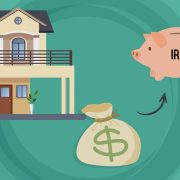Self-Directed Real Estate IRA Glossary
Basic Self-Directed Real Estate IRA Terms You Need to Know
Beneficiary. The individual named to receive the IRA assets and the IRA itself upon the IRA owner’s death. This has important tax and probate advantages. It is important to keep the beneficiary listed by name on your Self-Directed IRA, and keep it updated as appropriate.
Capitalization rate. Also called “cap rate.” The rate of return of a property based on expected rental income. The formula is net operating income (NOI) divided by the current market value or the acquisition costs, expressed as a percentage.
Catch-up contribution. Additional money you are allowed to contribute to a retirement account once you turn age 50 or older. For Self-Directed IRAs, you can contribute $5,500 (if you meet the income requirements, and another $1,000 each year in catch up contributions once you turn 50.
Disqualified Persons. Persons and entities prohibited by law from transacting directly with your Self-Directed Real Estate IRA. These include your spouse, your children or grandchildren, your spouse’s grandchildren, your parents and grandparents, your spouse’s parents and grandparents, and any entities they control. It also includes anyone advising you in a fiduciary capacity on your Self-Directed Real Estate IRA.
Fair Market Value. The estimated value of assets if they were sold to another informed third party in an arms-length transaction. The fair market value of IRA assets must be reported to the IRS as of December 31st each year.
Inherited IRA. An IRA inherited by someone other than a spouse. Special tax rules apply.
Form 5498. An IRS form you will receive each year from your retirement account custodians or administrators detailing your contributions to your retirement accounts.
Hard money loan. A short-term loan based on the assets within the IRA, typically at higher interest rates.
Non-recourse. Mortgages in Self-Directed Real Estate IRAs must be on a non-recourse basis. The IRA account holder cannot sign a personal guarantee, and in the event of default, the lender must have no security to collect other than the specific property bought with the proceeds of the loan.
Probate. A judicial process used to account for a deceased individual’s assets, pay off his or her creditors and distribute the proceeds to heirs. If you name a beneficiary on your Self-Directed Real Estate IRA or 401(K), however, these assets bypass probate and pass directly to your beneficiary. If you had owned them in your own name, however, or fail to name a beneficiary, these assets are subject to probate.
Prohibited investment. The law restricts Self-Directed IRA owners from investing in certain kinds of assets, including life insurance, collectibles, antiques, art, gems and jewelry, alcoholic beverages and certain forms of precious metal coins and bullion of insufficient or inconsistent purity. Investing in these assets could cause the IRS to strip your Self-Directed IRA of its tax-advantaged status. You may face taxes and penalties if this occurs.
Rollover. A tax-free transfer from one tax-advantaged retirement account to another. Each taxpayer is entitled to one tax-free rollover transaction per year.
Roth IRA. An IRA account that features tax-free growth, tax free withdrawals on assets that have been in the account at least five years but is funded with after-tax contributions.
Contributions are not tax deductible. These accounts can be held in self-directed or conventional IRAs.
Self-Directed IRA. An IRA in which the owner retains direct control of the individual investment decisions within the account, to include the selection of the custodian or broker. Self-Directed IRAs provide more flexibility in choosing alternative asset classes and fee structures. They can be traditional or Roth IRAs.
Self-Directed SIMPLE IRA. Savings Incentive Match Plan for Employees.
Unrelated debt-financed income. A tax that may apply to any realized gains or income within a Self-Directed IRA or conventional IRA, Self-Directed SIMPLE IRA or Self-Directed SEP IRA plan attributable to borrowed money.
At American IRA, we believe that Self-Directed IRAs, including Self-Directed Real Estate IRAs, are the best vehicles for growing your retirement account. And we have the experience to help you with your transactions.
Interested in learning more about Self-Directed IRAs? Contact American IRA, LLC at 866-7500-IRA (472) for a free consultation. Download our free guides or visit us online at www.AmericanIRA.com.




